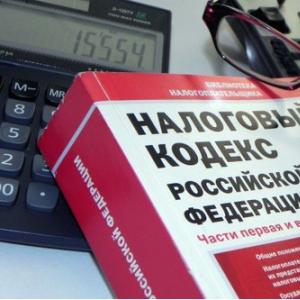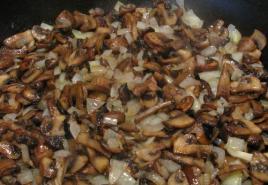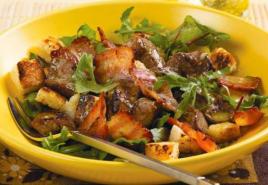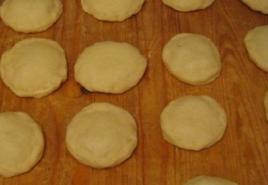Why the current victory parade turned out to be different from the previous one. Peskov explained the absence of foreign heads of state at the victory parade Which of the foreign guests arrived at the parade
He explained the absence of most foreign leaders from the Victory Parade in Moscow by the fact that the 72nd anniversary of the victory of the Red Army and the Soviet people over Nazi Germany in the Great Patriotic War 1941-1945 is not an anniversary date.
“Since we were not talking about an anniversary, then some kind of broad international participation was not foreseen,” the press secretary of the head of state quotes.
Peskov explained the presence of the President of Moldova among the guests on Red Square by the fact that the Moldovan leader was invited to attend this event by Russian President Vladimir Putin during their recent meeting on the sidelines of the EurAsEC summit in Bishkek.
“No other international participation was envisaged,” Peskov emphasized.
He also denied reports of an allegedly deliberate increase in turnout for the Immortal Regiment memorial rally.
“There is no need to initiate increased participation. The fact is that the popularity of this action is so great that there is no need for additional organizational actions,” said a Kremlin representative.
Igor Dodon attended the Victory Parade on Red Square - this is the first time in the last 15 years that the leader of Moldova took part in events marking May 9 in Moscow. This is Igor Dodon’s third visit to Moscow since the beginning of this year.
A number of state leaders and heads of government congratulated Russian President Vladimir Putin and Russians on Victory Day by sending corresponding telegrams. The President of Abkhazia, the President of Azerbaijan, the President of Armenia, the President of Belarus, and the President of Kazakhstan conveyed their congratulations.
The Western press, which covered this year's Victory Parade, notes that for the Kremlin, victory in the war is becoming one of the foundations of legitimacy.
The Washington Post, reminding readers of the sacrifices made by the USSR in the fight against the Nazis, notes that, in the Kremlin’s view, “saving the world from fascism is the greatest achievement not only of the Soviet Union. It became the basis for Russia's return to the image of a great power after the Cold War.
In 2016, the guest of honor on the podium was the President of Kazakhstan Nursultan Nazarbayev. Nazarbayev was an honorary guest of the Russian President in 2015, when Russia celebrated the 70th anniversary of the Victory, to which, due to cooling relations with Western countries, the leaders of European countries and the United States did not attend.
The parade in 2015, dedicated to the 70th anniversary of the Victory over fascism, was ignored by most European politicians. This was caused by the deterioration of relations between Russia and Western countries after the development of the Ukrainian crisis. Most of the 30 foreign leaders who came to Moscow were representatives of the republics former USSR. The head of Cuba appeared in the stands among the foreign guests
The Russian leader's press secretary, Dmitry Peskov, on Wednesday, May 10, explained why no foreign guests were present at this year's Victory Parade in the center of Moscow.
The explanation turned out to be very simple - it was not about an anniversary, as a result of which a very wide celebration was not planned. That is why participation large quantity There were no guests from other countries, TASS reports the words of Vladimir Putin’s press secretary.
Peskov emphasized that the head of Moldova, Igor Dodon, arrived in Moscow on May 9 at the personal invitation of the Russian President. Politicians recently met in Bishkek as part of the EurAsEC summit.
/ Wednesday, May 10, 2017 /Topics: Victory Day

The Victory Parade in Moscow this year did not involve the presence of a large number of leaders foreign countries, said press secretary of the Russian President Dmitry Peskov.
Dmitry Peskov: “Since this was not about an anniversary, no broad international participation was envisaged.”.
Peskov also explained that Moldovan President Igor Dodon was invited to the parade in Moscow by Russian President Vladimir Putin during their recent meeting on the sidelines of the EurAsEC summit in Bishkek. According to Peskov, Dodon accepted the invitation with gratitude, which explains his presence at the May 9 parade.
In addition, Peskov expressed surprise at reports of an allegedly intentional increase in turnout for the rally “Immortal Regiment”
.
Almost 10 thousand military personnel and 114 pieces of equipment took part in the festive parade on Red Square in Moscow. It was expected that 72 aircraft would fly over Red Square, but due to bad weather they decided to cancel this part of the parade. Planes and helicopters returned to their home airfields.
NTV and NTV.Ru broadcast live the parade in Moscow.

Wide international participation in the parade on the occasion of the 72nd anniversary of the victory in the Great Patriotic War was not expected this year, said Russian Presidential Press Secretary Dmitry Peskov. RIA Novosti reports this.
Vladimir Putin invited the President of Moldova Igor Dodon to a meeting in Bishkek, and he accepted the invitation. No other international participation was envisaged, since it was not about the anniversary.
More than 10 thousand military personnel and more than 100 units of modern weapons and military equipment were involved in the May 9 parade. Vladimir Putin traditionally greeted the parade participants and congratulated the country on the holiday.

Press Secretary of the Russian President Dmitry Peskov explained why there were no heads of foreign states at the Victory Day parade in Moscow, besides the President of Moldova Igor Dodon. Peskov’s words are quoted by RBC.
A Kremlin official said that since this case was not about the anniversary of the victory, broad international participation was not envisaged. At the same time, Vladimir Putin agreed with the Moldovan leader to visit Moscow at a meeting within the framework of the EurAsEC summit in Bishkek.
Peskov also said that the Kremlin was surprised by reports of an allegedly deliberate increase in turnout for the procession “Immortal Regiment ” . According to the president’s press secretary, there is no need for organizational actions in order to initiate an increased turnout for the rally, since the popularity “Immortal Regiment” is already great.
The day before, at the end of the Victory Parade in Moscow, Russian President Vladimir Putin laid flowers at the Tomb of the Unknown Soldier, after which he led the procession “Immortal Regiment” with a portrait of his father, a front-line soldier.
Victory Day is one of the main holidays in Russia. Every year, high-ranking politicians from other countries watch the parade on Red Square along with veterans of the Great Patriotic War. “360” tells who will come to the Victory Parade this year and who was the guest of honor at the celebrations of past years.
More than just a visit
Several years ago, Russia abandoned the practice of inviting foreign leaders to celebrate Victory Day. But if desired, any of them can take part in the celebrations. Exceptions are anniversaries: in this case, all prominent world politicians receive an offer for the celebration.
This year, Serbian President Aleksandar Vucic and Israeli Prime Minister Benjamin Netanyahu will come to Moscow. The visit of the heads of these states is not only secular in nature. Vucic plans to discuss with Vladimir Putin issues of his country’s relations with Russia. Netanyahu is going to talk about the Iran nuclear deal, which was in jeopardy due to US intentions to withdraw from it.
In 2017, the only foreign president to attend the parade in Moscow was Moldova's President Igor Dodon. His visit was significant: it was the first visit of a Moldovan politician of this level to Moscow on Victory Day in 15 years. It is unknown whether Dodon will come to the holiday this year.
One of the regular guests of the events dedicated to May 9 is the President of Kazakhstan. Nursultan Nazarbayev participated in the holiday for three years. In the politician’s homeland, the parade in honor of Victory Day was abandoned in 2016. It is also unknown whether the leader of Kazakhstan will come this year.
Belarusian leader Alexander Lukashenko has not appeared at the Victory Parade in Moscow for three years. He is taking part in a similar event in his country. No one can replace Lukashenko in Minsk, because only the commander-in-chief has the right to host the parade.
Anniversary parades
 Photo source: RIA Novosti
Photo source: RIA Novosti
Most foreign guests visited Moscow during the celebrations of the Victory anniversaries. It was especially crowded in 1995. On the first anniversary of Victory in modern history Russia arrived general secretary UN and leaders of France, USA and Germany. The event was attended by Ukrainian President Leonid Kuchma and Georgian President Eduard Shevardnadze. In total, about 60 prominent political figures gathered.
In 2005, Russia celebrated the 60th anniversary of the Victory. Seats on the podium were taken by Italian Prime Minister Silvio Berlusconi, French President Jacques Chirac, US President George W. Bush and German Chancellor Gerhard Schröder.
 George Bush with his wife and Vladimir Putin. RIA Novosti/Sergey Pyatakov
George Bush with his wife and Vladimir Putin. RIA Novosti/Sergey Pyatakov
A group of Wehrmacht veterans arrived with the German politician. After the parade ended, Vladimir Putin spoke with them personally. Then the delegation from Germany visited the Lublin cemetery - the burial place of the remains of Germans who were captured by the USSR.
Traditionally, the leaders of Latvia and Estonia refused the invitation to come to Moscow on Victory Day.
 Photo source: RIA Novosti/Alexey Druzhinin
Photo source: RIA Novosti/Alexey Druzhinin
In 2015, the parade in honor of the 70th anniversary of the Victory was observed by Chinese leader Xi Jinping, UNESCO Director General Irina Bokova and UN Secretary General Ban Ki-moon. Chairman of the Presidium of the Supreme People's Assembly of the DPRK Kim Yong Nam, Venezuelan President Nicolas Maduro and Cuban leader Raul Castro were also present at the celebrations. Among those who accepted the invitation were the leaders of the CIS countries, Latin America and Asia.
 Nicolas Maduro and Raul Castro. RIA Novosti/Konstantin Chalabov
Nicolas Maduro and Raul Castro. RIA Novosti/Konstantin Chalabov
Members of the European Union were represented only by Cyprus. Israeli Prime Minister Benjamin Netanyahu refused to come. But this year the politician will visit Moscow.
President of Moldova Igor Dodon promised to come to Moscow for the parade in honor of the 72nd anniversary of the victory in the Great Patriotic War. The leader of this country will participate in the celebrations on Red Square for the first time in a decade and a half. Why are the leaders of the once fraternal republics and heads of Western states in last years do they so often reject invitations to the Victory Parade?..
Igor Dodon announced a visit to Moscow on May 9 back in April, promising to come to the holiday with his wife and son: “I received an invitation from Russian President Vladimir Putin to visit holiday events on the Red Square. For almost 15 years, the presidents of Moldova did not come to Moscow on this day, so I decided to go.”
In 2010, Mihai Ghimpu, the acting president of Moldova, stated that the “vanquished” had nothing to do on this holiday. “How can I participate in a parade next to the army that brought communism, organized famine and deportations to Siberia? This army was also the basis for the formation of Transnistria,” he explained.
Claims from USSR times
Resentment towards the Soviet past forced two more presidents to refuse to attend celebrations in connection with the 50th anniversary of the Victory in Moscow. In 1995, when the Russian authorities first invited foreign leaders to the parade, not only representatives of the countries of the anti-Hitler coalition came, but also the German leadership.
Lithuania and Estonia refused to participate in the event, and both states delayed for a long time with official explanations. Lithuanian President Valdas Adamkus subsequently expressed the hope that Moscow would not be offended by his decision to remain in Vilnius, but expressed the opinion that his country suffered for almost 50 more years after the war. Estonian Prime Minister Andrus Ansip put it more specifically and harshly: “The victory in World War II was a great victory over fascism, but it was followed by the occupation of the Baltic countries. Soviet Union made a big mistake."
There were also complaints against Moscow regarding the current agenda. In 2005, Georgian President Mikheil Saakashvili canceled his visit three days before the parade. “For now we are in a situation where there is nothing special to celebrate in Moscow,” he said. Saakashvili was dissatisfied with the fact that Russia was in no hurry to make a decision on the speedy withdrawal of Russian bases from Georgian territory, which Tbilisi insisted on. The President of Georgia called his decision the act of a “proud leader of a democratic state.” Now the Georgian president is not invited to the parade: diplomatic relations between the countries have not been established since 2008.
Ukrainian factor
The wave of collective refusals began in 2014 - after the change of power in Kyiv, the conflict in south-eastern Ukraine and the annexation of Crimea. In 2015, May criticism from abroad already looked familiar and expected. Kyiv repeated that “in the conditions of Russian aggression” the participation of Ukrainian representatives in the parade is unthinkable.
Many others did not come, including American President Barack Obama. “The reason is Ukraine. And this is the decision not only of Obama, but also of most leaders of European countries and, perhaps, other regions,” explained US Ambassador John Tefft. According to him, there was “a feeling that during the parade in Moscow they would also celebrate what happened in Ukraine.”
During preparations for the anniversary, the Russian Foreign Ministry emphasized that the decision of German Chancellor Angela Merkel would play a special role “in disrupting the anti-Russian campaign.” She, however, chose a compromise option: she refused to attend the parade because of the situation in Donbass, but came to Moscow the next day - May 10.
There has traditionally been no Moldovan leadership, although the reasons for the refusal have changed. The country's President Nikolai Timofti did not hide the fact that he was acting in solidarity with the Europeans: almost all of them canceled visits in connection with the events in Ukraine.
Only Tallinn’s explanations did not change, which, even against the backdrop of the Ukrainian crisis, continued to remember the Soviet occupation, refusing to go to the celebrations in Moscow.
Ultimately, just over 20 of the 68 invited leaders agreed to the Russian side. Some of the Europeans arrived even despite criticism and sanctions. Czech President Milos Zeman even argued about this with the American ambassador in Prague. He expressed dissatisfaction with Zeman’s intention to attend the celebrations in Moscow and received a stern rebuke: “I cannot imagine that the Czech ambassador in Washington would advise the American president where to go. And I will not allow any ambassadors to interfere with my foreign travel plans.”
Personal and presidential affairs
Washington and other world capitals ignored the parade not only for political reasons: on May 9, 2010, Obama could not be in Moscow, as he was receiving a doctorate in law from Hampton University. In 2015, when everyone was talking about the Ukrainian crisis, some leaders also referred to personal busyness. This is what, for example, French President Francois Hollande and Japanese Prime Minister Shinzo Abe did.
But more often they used internal state affairs as an excuse. Seven years ago, Italian Prime Minister Silvio Berlusconi canceled a visit to Moscow due to the financial crisis. His office explained that overcoming problems requires constant contact. For the same reason, French President Nicolas Sarkozy remained in Paris.
There will probably be no Parisian guests this time either: the day before, the country hosted presidential elections, as a result of which the leader of the “Forward!” movement won. Emmanuel Macron.
Representatives of the United Kingdom also missed the holiday in Moscow because of the elections. Thus, in 2005, British Prime Minister Tony Blair telephone conversation with Russian President Vladimir Putin said that he would not be able to attend the parade. Putin was understanding, congratulating Blair on his birthday and his party’s victory in the elections.
Relationships without invitations
The Kremlin, as a rule, takes refusals calmly, emphasizing that the parade is not held for foreign guests, but primarily for veterans. In the situation of the mass boycott in 2015, Foreign Minister Sergei Lavrov noted that five years earlier there were also few high-profile foreign figures, although neither the events in Donbass nor the annexation of Crimea had yet happened.
Russian President Vladimir Putin emphasizes that his colleagues always have the right to choose, although he expresses doubts that they all make this choice on their own: “Some people don’t want to, others are not allowed in the “Washington regional committee.” Some may even be ashamed, but let them decide for themselves.”
The leader of neighboring Belarus, meanwhile, condemned colleagues who use the refusal for political purposes. “It’s a different matter when you’re busy at home,” he noted. Before the 70th anniversary of the Victory, when the list of guests was unusually small, Alexander Lukashenko’s plans were followed with special attention, but he did not live up to expectations. “In Belarus, according to the constitution, no one except the commander-in-chief can host the parade. On May 9, we will have our own parade, the same as in Moscow,” said Lukashenko, who, however, during the years of his presidency attended parades in the Russian capital more often than in Minsk.
In Kazakhstan, a solemn military march in honor of the Victory was abandoned last year, and the country’s president went to Moscow for events. As a result, Nursultan Nazarbayev received special gratitude from Putin. “This is a sign of our special relationship, allied relations, we are very pleased with this, we want to thank you for this,” said the Russian leader.
Nazarbayev, like other guests, arrived at the parade in 2016 without the traditional invitation. They simply stopped sending them out, the Kremlin explained, but emphasized that all guests would be welcome. Among them will probably be the President of Kazakhstan again - after all, the parade in Astana has already taken place.







